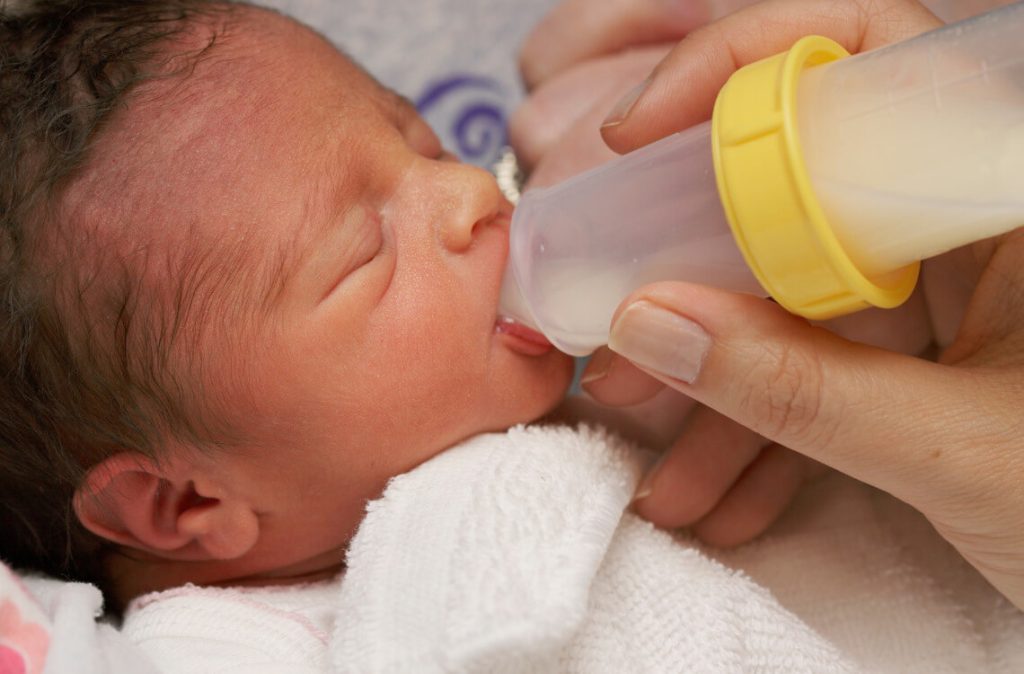Hiccups are a common occurrence in babies and young children. First-time parents may find hiccups worrisome but don’t worry, there are ways to prevent and stop them. Hiccup is a natural reflex that happens with babies and it typically lasts for a few minutes.
Medical professionals have stated that hiccups aren’t a major cause for concern. While generally harmless, it can cause the baby to be in discomfort and if they last for more than a few minutes then a doctor should be consulted. Let’s explore what causes hiccups, and how to prevent and stop them.
Understanding the Causes Behind Baby Hiccups
A baby’s digestive system is still developing and growing after they are born so it’s normal for parents to deal with spit-ups and hiccups. Hiccups occur when the thin muscle between the chest and abdomen (diaphragm) tightens and contracts. This action is involuntary and it’s impossible to control (for both adults and babies).
It’s also important to note that the vagus nerve controls our breathing and swallowing (it even controls the vocal cords) and if the vagus nerve is irritated, hiccups might happen. Let’s explore other reasons why a baby might start to hiccup.
Overfeeding
A baby has a small stomach during the first year of life and since they can’t communicate, parents may find it hard to tell if the baby is full. Overfeeding allows too much air to be swallowed and this can cause hiccups in babies. A full stomach will expand and push against the diaphragm, causing discomfort.
Quick Feeds
Taking in air and milk too quickly can also cause a baby’s stomach to distend and have excess gas. Excess gas may cause discomfort and hiccup. If your baby is fussy or cranky before they feed, this might also increase the chances of having hiccups.
Infant GERD
GERD (gastroesophageal reflux disease) happens when the stomach acid flows back up to the oesophagus. This can cause major discomfort and hiccups. There are other symptoms to confirm if the baby has GERD so if your child is having trouble during feeding time, it’s best to check with a doctor if the baby has this medical condition.
Tips to Keep Your Baby Hiccup-Free
To keep your baby comfortable, you can try to prevent hiccups from occurring when possible. Some babies do not like the hiccup sound they make and this might make them cry. It’s advantageous for parents to research home remedies to prevent hiccups so that they can try to solve the issue at home. Here are some tips to help you prevent your baby from hiccupping.
Pacifier
Sucking on a pacifier can help to relax the diaphragm, reducing the chances of the baby developing hiccups. Using a pacifier may also help elevate discomfort caused by excess gas.
Burp During Feeds
When feeding the baby, take short breaks in between to gently burp them. Burping the child during feeds can help to release the air trapped in the stomach. While this practice can help reduce the chances of hiccups, it can also help the child to comfortably drink milk without experiencing much discomfort.
Track Timing
Tracking the timing of hiccups can determine if you need to consult a paediatrician. If your child is hiccupping at an abnormal rate that seems worrisome, it’s best to immediately seek medical attention. By tracking the timing of the hiccups, this data can help the doctor determine if further medical investigation is needed.
Check the Bottle
Using the proper bottle to feed the child is important, if the teat or the bottle is not age-appropriate it may cause the baby discomfort. Using the right teat will remove excess air while feeding. It’s best to check the model of the bottle and its accessories so it can be age-appropriate for your child.
Effective Techniques to Stop Baby Hiccups
Since the chances of hiccups happening are quite high, it’s also helpful to learn some ways to stop them. Prevention might not work all the time so it’s good to have a few backup plans to help. Here are some techniques that can help stop hiccups in babies.
Feeding Position
Positioning the baby the right way during feeds can reduce the air intake and help the milk to flow properly into the stomach. It’s also a good idea to change the resting position of the baby if they are hiccupping. If the baby can sit upright or rest at a different angle, this may help to stop the hiccups.
Feeding Before Hunger
Try to feed the child before they get too hungry. When a child is famished, they may suffer from gas and their diaphragm would be stressed. Feeding them when they are cranky can increase the chances of hiccups.
Hold Baby Upright After Feeds
Holding the baby upright after feeding and gently patting their back is a good way to soothe the child. This also helps the excess air to be released and stops the hiccups.
Calm the Baby Before Feeding
The baby should be calm when the feeding is done. If the child is agitated or already in the middle of hiccups, feeding them immediately might cause more discomfort. Try to distract them to stop the crying so they can feed calmly.
Happy Baby, Happy Life
Even though hiccups are harmless, it’s good to learn how you can prevent and stop them for your baby’s comfort. Even though there aren’t any definite reasons for hiccups to occur, our suggestions to prevent them should help you reduce the chances of your child having hiccups.
Remember to immediately consult with a medical professional if your baby is hiccupping constantly and if they are vomiting. Regardless if the baby is fed formula or breast milk, hiccups will happen so parents should be prepared to deal with it beforehand.
For more insightful stories and fun recipes, stay tuned to Motherhood Story!
